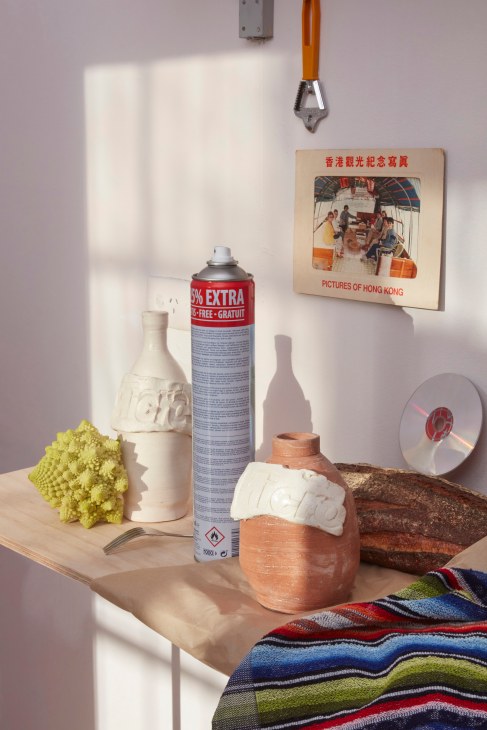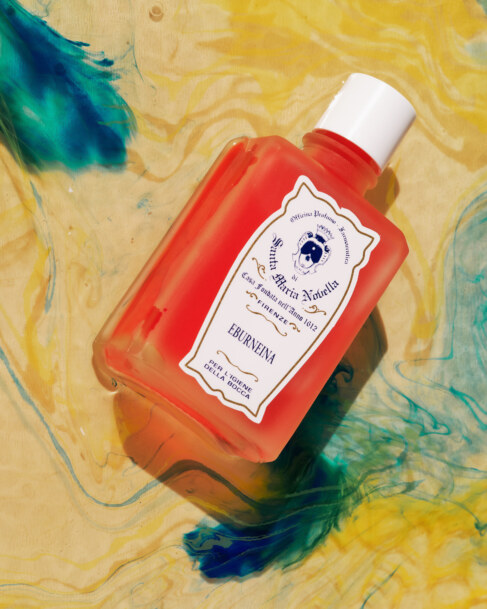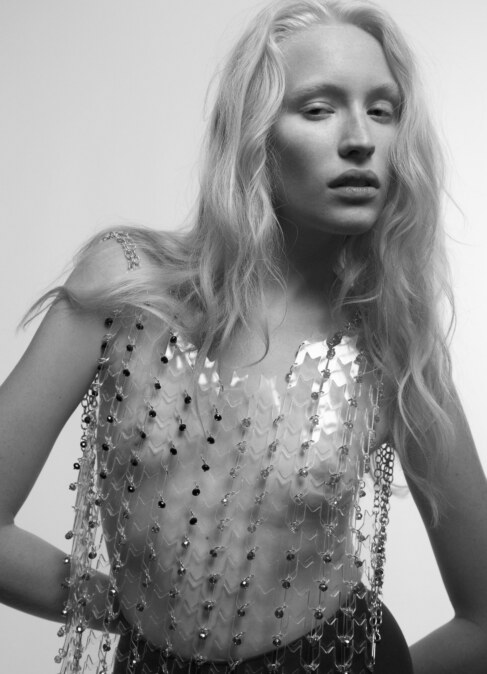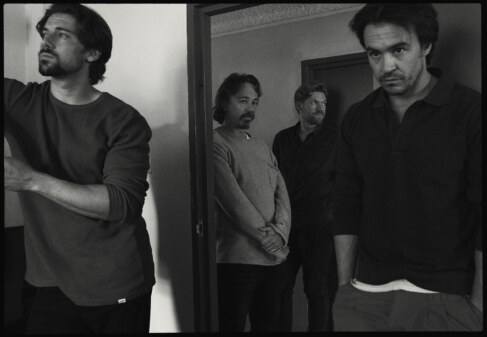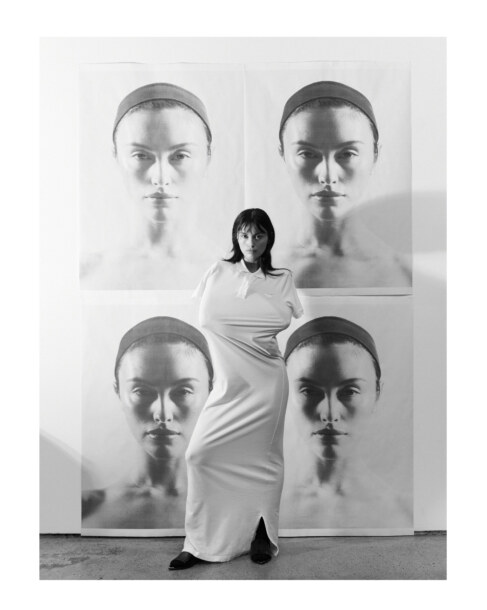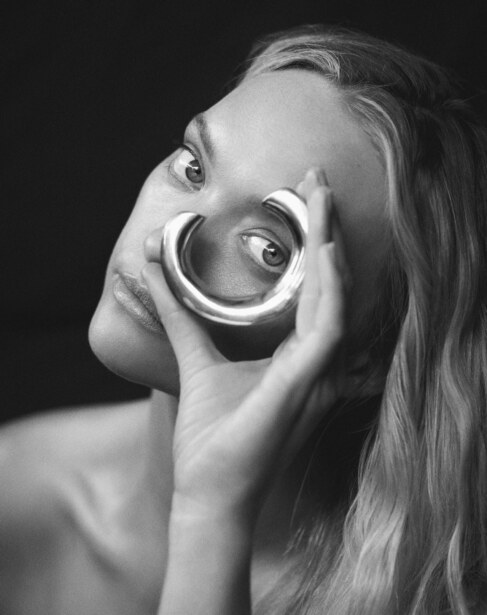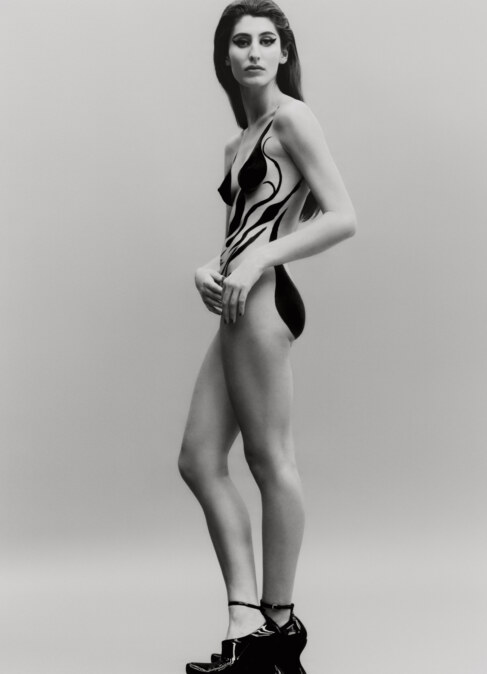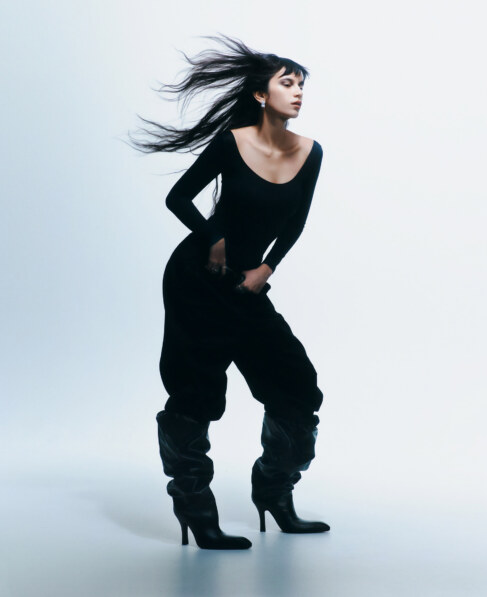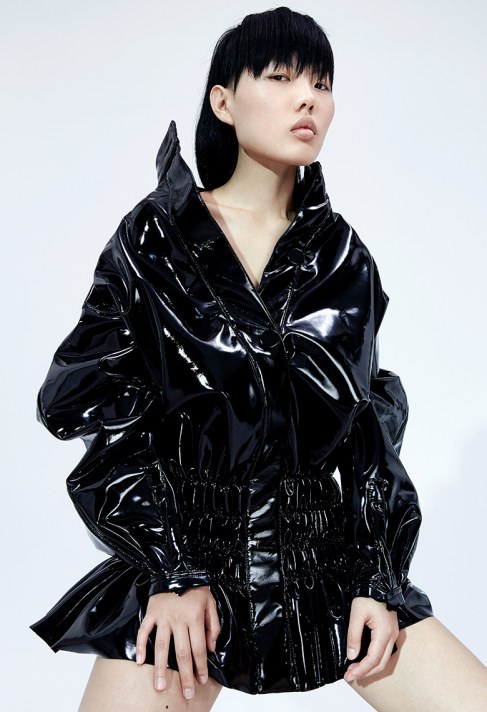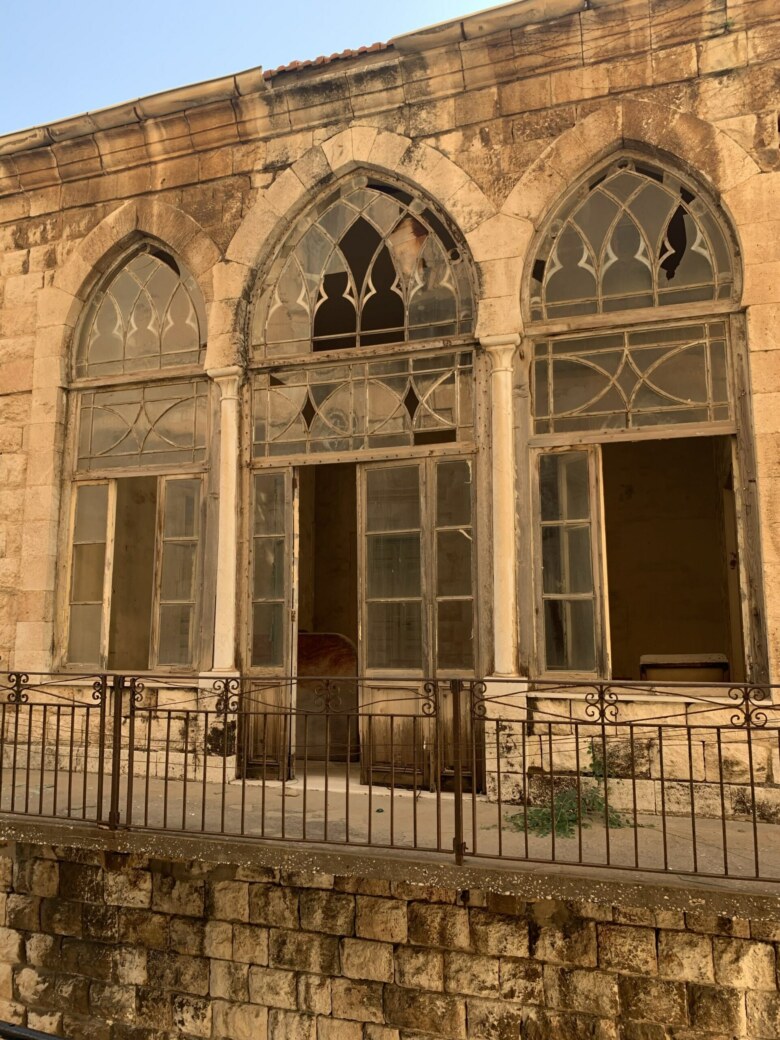
Image courtesy of Giselle Farhat
FOR BEIRUT – لبيروت BY GEORGES ANTONI
PHOTOGRAPHER: Georges Antoni @ The Artist Group
PHOTOGRAPHERS ASSISTANT: Chris Peck
DESIGNER: Ela Stein
WRITTEN BY: Grace O'Neill
FEATURING:
Georges Antoni @ The Artist Group
Giselle Farhat @ My Chameleon
Marie-Claude Mallat @ MCMPR
Olivia Lahood @Olivialillalahood + @Christopheresber
Ribal Hosn @ The Artist Group
Rachel Wayman @ The Artist Group
Sarah Tammer @ Viviens Creative
Special thanks to Sun Studios
In a year already marred by tragedy and uncertainty, the Beirut explosion on August 4th was yet another cruel blow, doled out by an unrelenting 2020. For the people of Lebanon—including the almost quarter of a million Lebanese-descended inhabitants of Australia—it was a special kind of heartache. The people of Beirut, feeling long abandoned by their government, had transformed the port city into a thriving cultural epicentre entirely on their own. These same people were left to fend for themselves when their city was destroyed in one of the most powerful non-nuclear explosions in human history—one which killed 180, injured 6,000 and left more than 300,000 people without homes.
But to define Beirut, Lebanon or the Lebanese people by tragedy would be a mistake. When SIDE-NOTE began our portfolio of seven Lebanese-Australian creatives in the aftermath of the disaster, the overwhelming response during our interviews was this: The people of Lebanon are resilient. This is not the first time in the country’s troubled and chequered history that its people have been asked to overcome unimaginable tragedy, and they have risen to the challenge, yet again. Here, these creatives—heavyweights in the Australian fashion industry—share the many things they love about their culture, how being Lebanese informs their work, and how to best help those affected by the Beirut tragedy. As photographer Georges Antoni, who lensed this portfolio, said: “Many people may not know that Beirut was destroyed and rebuilt seven times in history. God willing, it will rise again.”
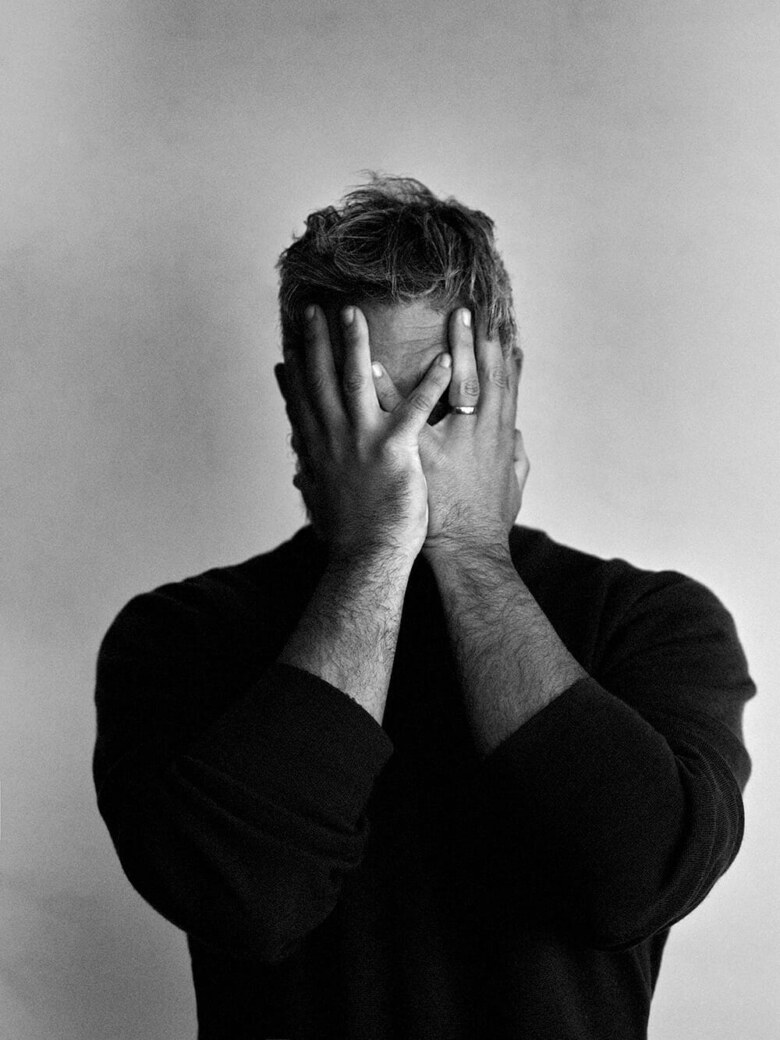
Georges Antoni
Photographer
Donate: I donate to the Lebanese Red Cross
My mum and dad are Lebanese. They both migrated to Australia to escape the bubbling civil war back in 1970. Of all the places they could have migrated to they went to a small country town in central Queensland called Blackall. It’s seven hours to the closest traffic light and has only 1500 people. The more I think about it, the more I realise they are almost superhuman to have sacrificed their whole life – family, friends, food and culture – in order to try and give us a better life in an foreign land, without any necessary basics like language or money. It also makes me feel so proud as an Australian that my country allowed people like my parents the opportunity to live a better live and provide my sisters and I with so many wonderful opportunities that many Lebanese have not been afforded in recent years.
My trips back to Lebanon are some of the best memories I have. Going to Lebanon as a child and seeing my extended family, they all seemed like mega stars to me because my parents always spoke so highly of everyone. I was in awe. Getting to spend time with my family who I knew so much about through my parents, but only saw every seven or eight years, that was the highlight of those trips (and all the food…)
Last year my whole family visited Lebanon and went skiing in the mountains in the morning and 45 minutes later we jumped in the Mediterranean and swam the afternoon – that’s pretty cool. Visiting my dad’s family in the mountains of Lebanon – the life is so simple and so beautiful. We all sit outside and eat Lebanese bbq with fresh Lebanese bread and beautiful tabbouleh and fatoush that had been picked from their gardens… it’s my kind of life. Being back in Lebanon drives home so many parts of the culture that I love – the unbelievable hospitality, the unparalleled generosity, the lust for life and the focus on family. And, of course, the incredible food.
I picked my hands because they remind me of my dads and my uncles on my mothers side as well, so there must be a Lebanese thing going on there.
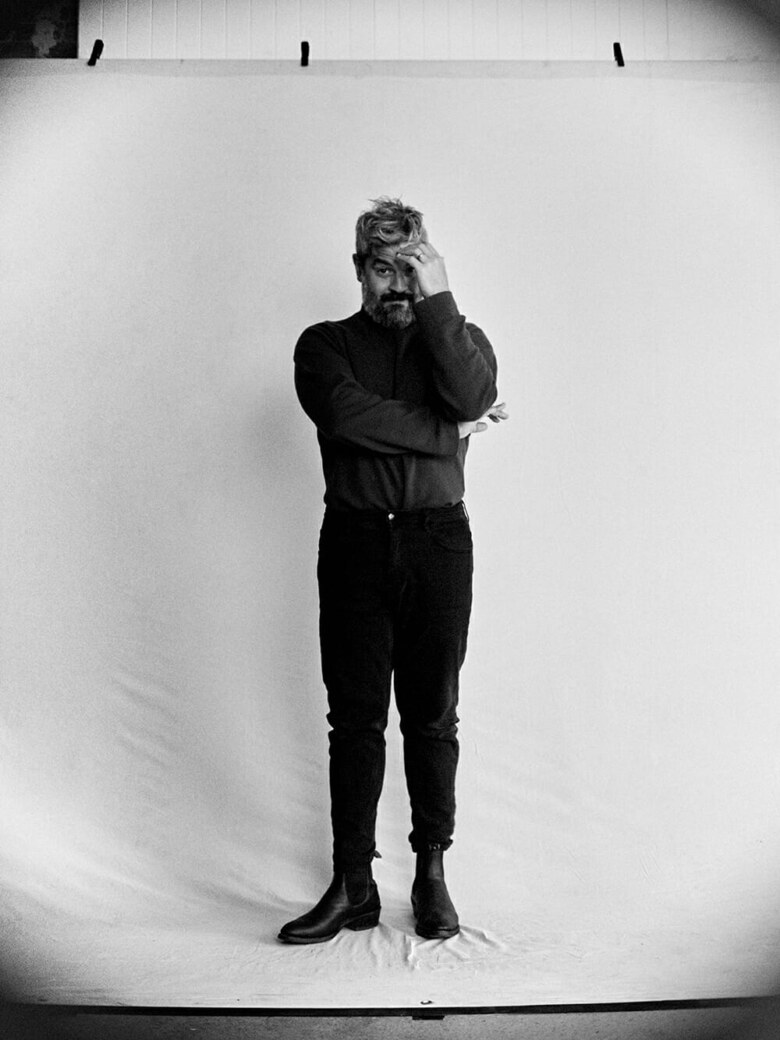
There is so much that is and has been misunderstood about Lebanon, Beirut and the Lebanese culture in general. There are 4.5 million Lebanese people in Lebanon, and they have 2 million refugees from Syria and Palestine. It kind of makes our ‘Australian boat people issue’ feel a little insignificant. It’s one of the most highly tertiary edited societies in the world – education is critical to Lebanese culture and families will spend everything or sell their houses to pay for their children’s education. Lebanon was home to the first alphabet, first law school and the first boat people (the Phonecians).
Everything that constitutes who I am is derived from my Lebanese heritage, it informs the role I assume as a father, as a husband, as a son, brother, friend and photographer. Many people may not know that Beirut was destroyed and rebuilt seven times in history. God willing, it will rise again.
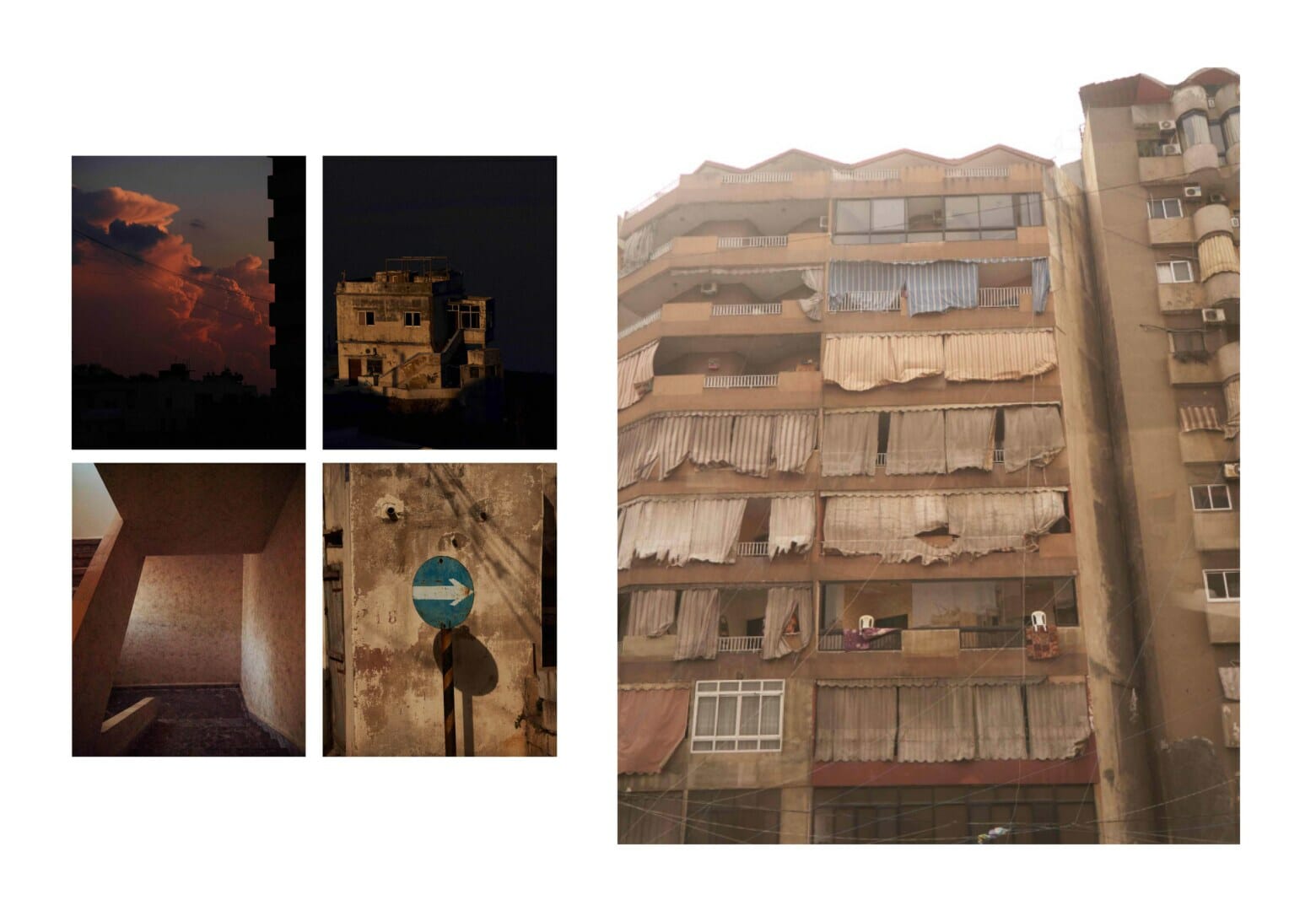
Images courtesy of Georges Antoni
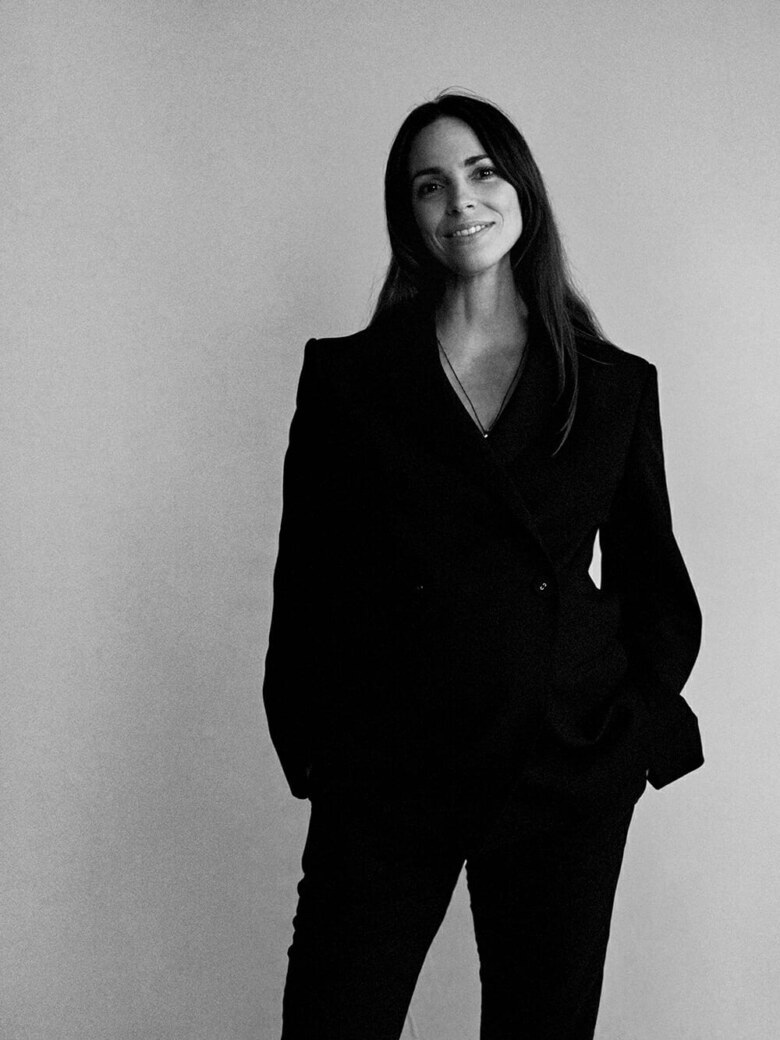
Giselle Farhat
Founder, My Chameleon
Donate: @ImpactLebanon is the best as they are vetting the organisations. They provide progress reports on how they spend the money etc. They are also not affiliated with the government.
My dad is from Lebanon – he came to Australia when he was 18 – and my mum is from Germany. My childhood was very much influenced by Lebanese culture – the commitment to family, the food, the music and the passion all informed the way we were brought up. We were also fortunate enough to travel to Lebanon yearly while I growing up in the late ‘80s. We were exposed to the highs and lows of a country that never fully recovered from the civil war. I think we were very open minded for our generation, acceptance of others was a very important principle to my parents, and we were exposed to a different language and culture from the start.
Lebanon became like a second home to us. We usually began our summer holidays in Lebanon to see my grandfather. It can get very hot, so we’d spend most of our time either at the beach or by the pool. In the afternoons we’d go to a beach bar or coastal restaurant. Or, to beat the heat we’d drive up the mountains where it is tranquil and fresh – we have a place there that overlooks the Baakka Valley. The food is incredible, healthy and made with so much love. I love to visit Byblos whenever I go; it’s over 7000 years old and documented as the oldest inhabited city. It has this beautiful energy.
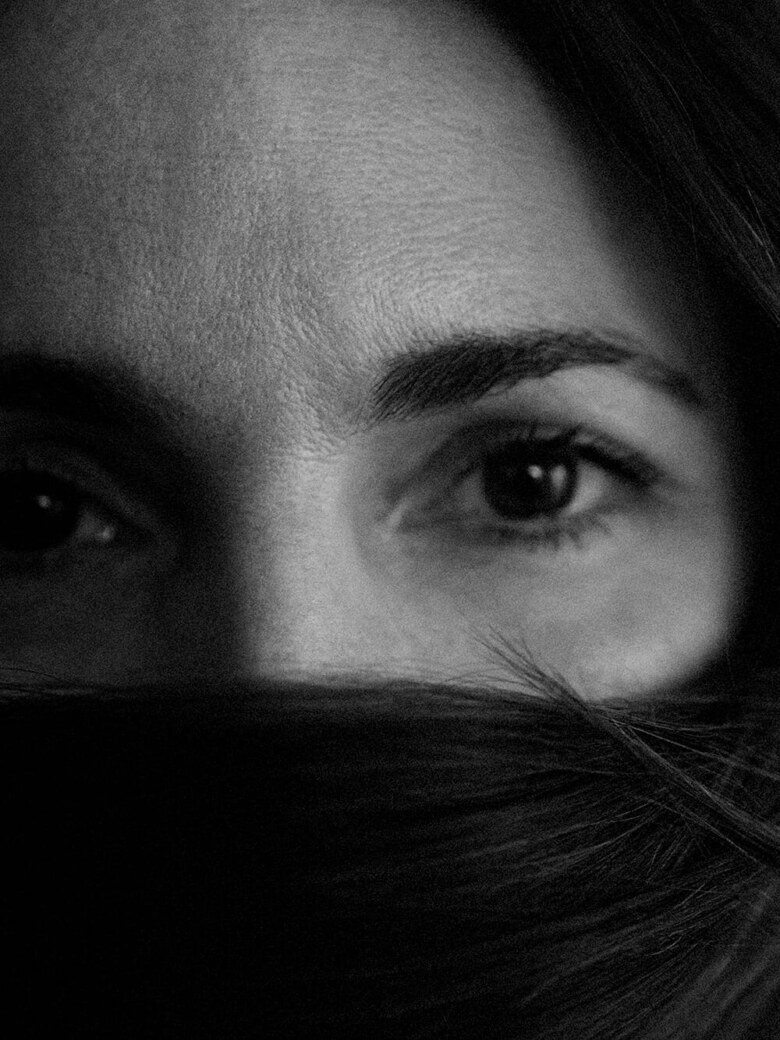
Growing up I felt I was constantly defending Lebanon and Lebanese people. There was always a misconception of it being an unsafe place to go, with bombed-out buildings. The media has portrayed it this way for as long as I can remember, yet in all the time I have spent there I never felt this way. With more western travellers exploring the country I think this misconception is no longer as strong – people are travelling to Lebanon for fun and adventure. They are realizing that there is this incredible history, remarkable architecture and art and a high percentage of people are very educated and fluent in both English and French. Some of my favourite suburbs in Beirut like Gemmayze, Mar Mikeal and Achrifiah were greatly affected by the explosion. These places are cosmopolitan with design, art and the best nightlife.
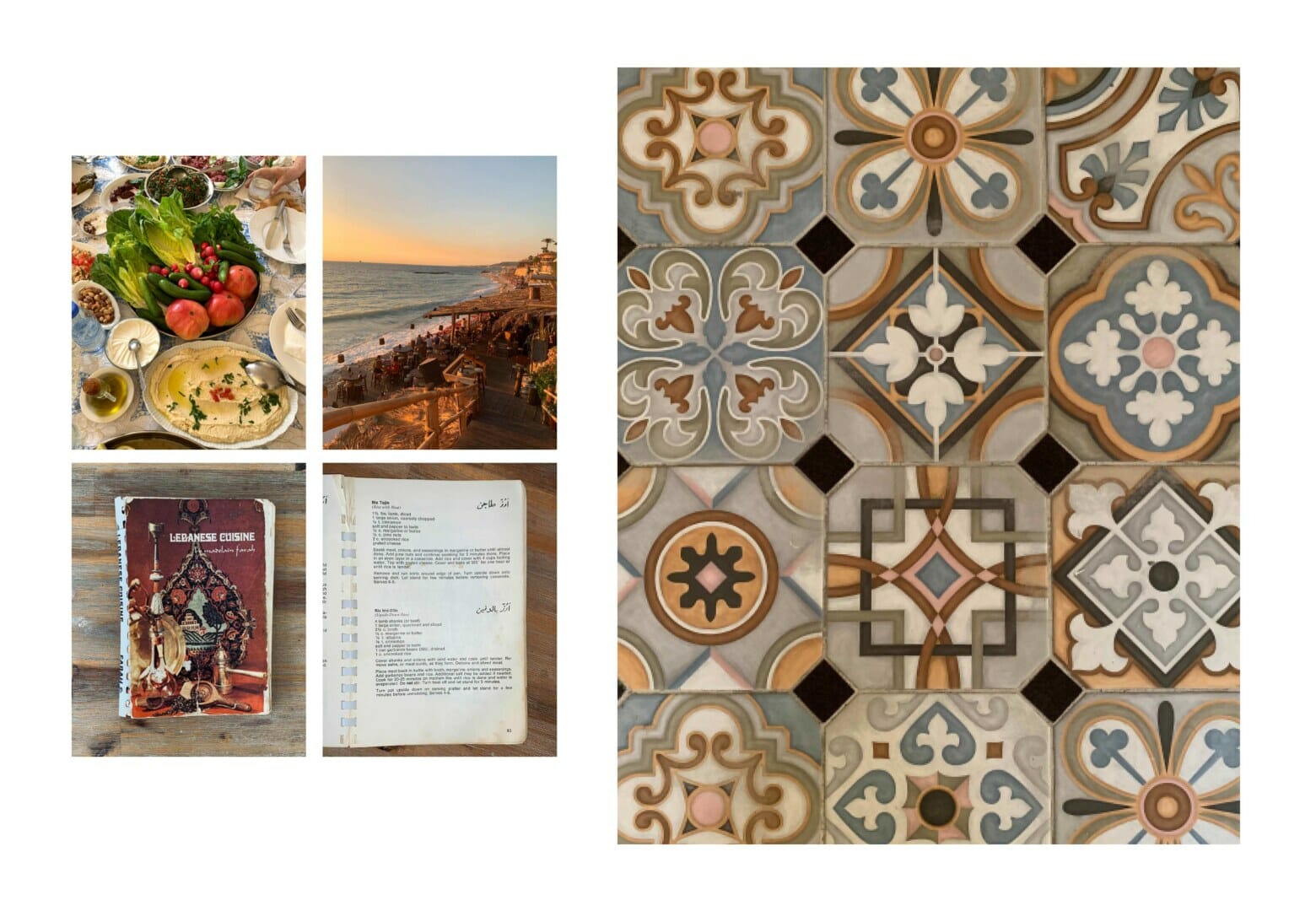
Images courtesy of Giselle
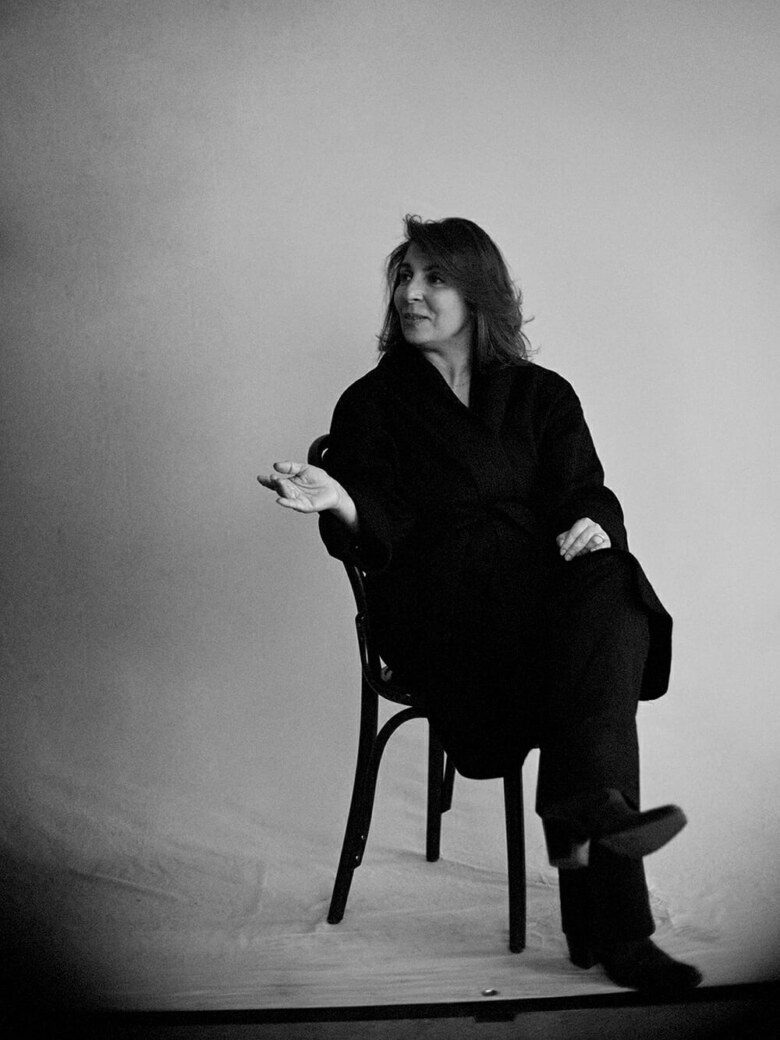
Marie-Claude Mallat
Director, MCMPR
Donate: I have been donating to @beitelbaraka @impact.lebanon @livelovebeirut. All are transparent and doing amazing work in conjunction with other effective NGO’s on the ground in Beirut.
My family is Lebanese. My father is from Beirut, he grew up in the port area where the explosion took place, and he still has family in the affected district of Ashrafieh. My mother is from the north of Lebanon from a beautiful town called Ehden. I was born in Beirut and for the first eight years of my life lived and went to all girls French school there. When the Lebanese civil war broke out in the mid ‘70s, we were forced out of our home in Beirut for safety and eventually it became untenable to return.
Once we settled in Australia my brother and I learned to speak English and quickly immersed ourselves in the local beach scene. I spent a lot of energy as a teenager trying to eradicate any trace of my heritage, I suppose I just wanted to fit in and wanted to forget what we had experienced in the war and leaving our extended family behind. It wasn’t until I was older that I reconnected with my heritage and embraced all the great elements of it.
I associate being Lebanese with family, food, music and a joyful thirst for life. Lebanon is enmeshed in ancient Phoenician heritage and architecture, French colonialism and its own unique Middle Eastern culture. Its sounds, sights and way of life are so diverse and stimulating. You feel the passion and energy of the people the minute you arrive. The varying influences on Beirut blend together to create a gorgeous, unique place and experience. Being Lebanese taught me resilience, it taught me a lot about racism, segregation and how a place, a people and situations can be wonderful and dreadful at the same time. More than anything, being Lebanese has taught me to never give up in times of difficulty and to show up for my friends and family especially when they’re experiencing hardship.
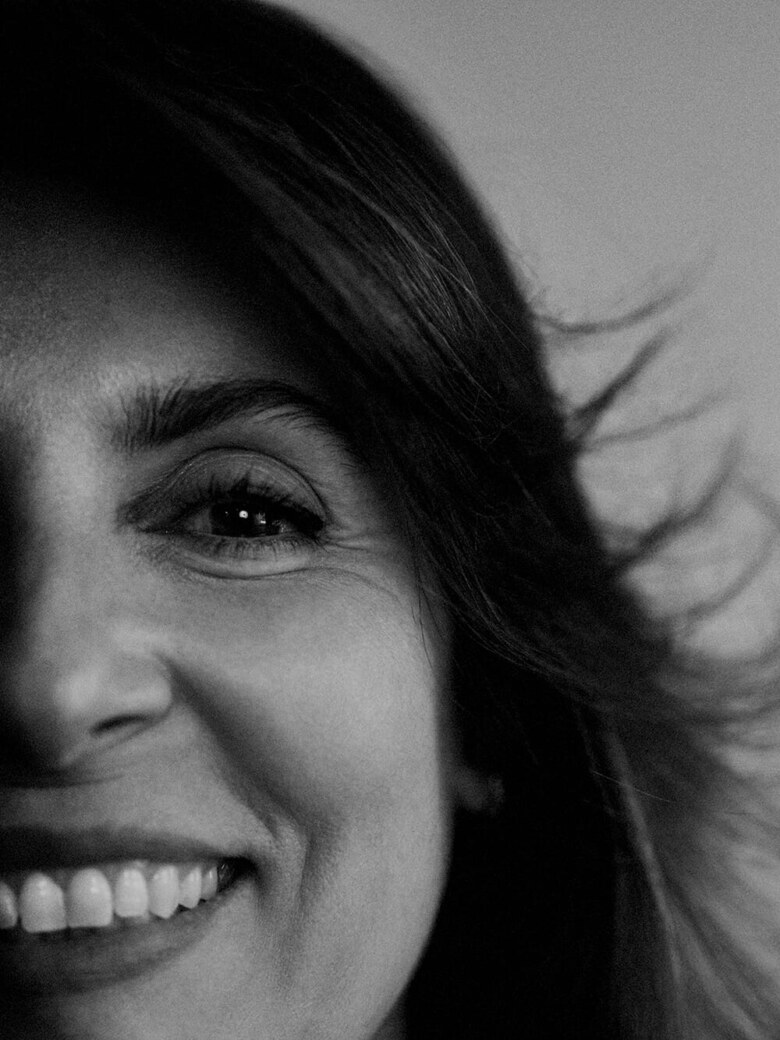
Lebanon has been dogged by many years of unrest and decades of geopolitical struggle. The new generation of educated, progressive young Lebanese has been holding protests to liberate them and their parents’ generations from decades of systemic government corruption. They are doing this peacefully and with intelligence. They want an independent government that can provide opportunity for its people so they can live in peace and with dignity. The explosion on 4th August following an economic collapse, combined with Covid-19 had pushed the population to their limit. The most inspiring thing though is seeing the people unite even after all of these challenges to clean up Beirut and support those who have been injured or rendered homeless. They have shown selflessness and an ability to unite and rally that gives so much hope for a better society in Lebanon, one built on values of democracy and equality.
We need to keep talking about Lebanon so as not to abandon the amazing people.
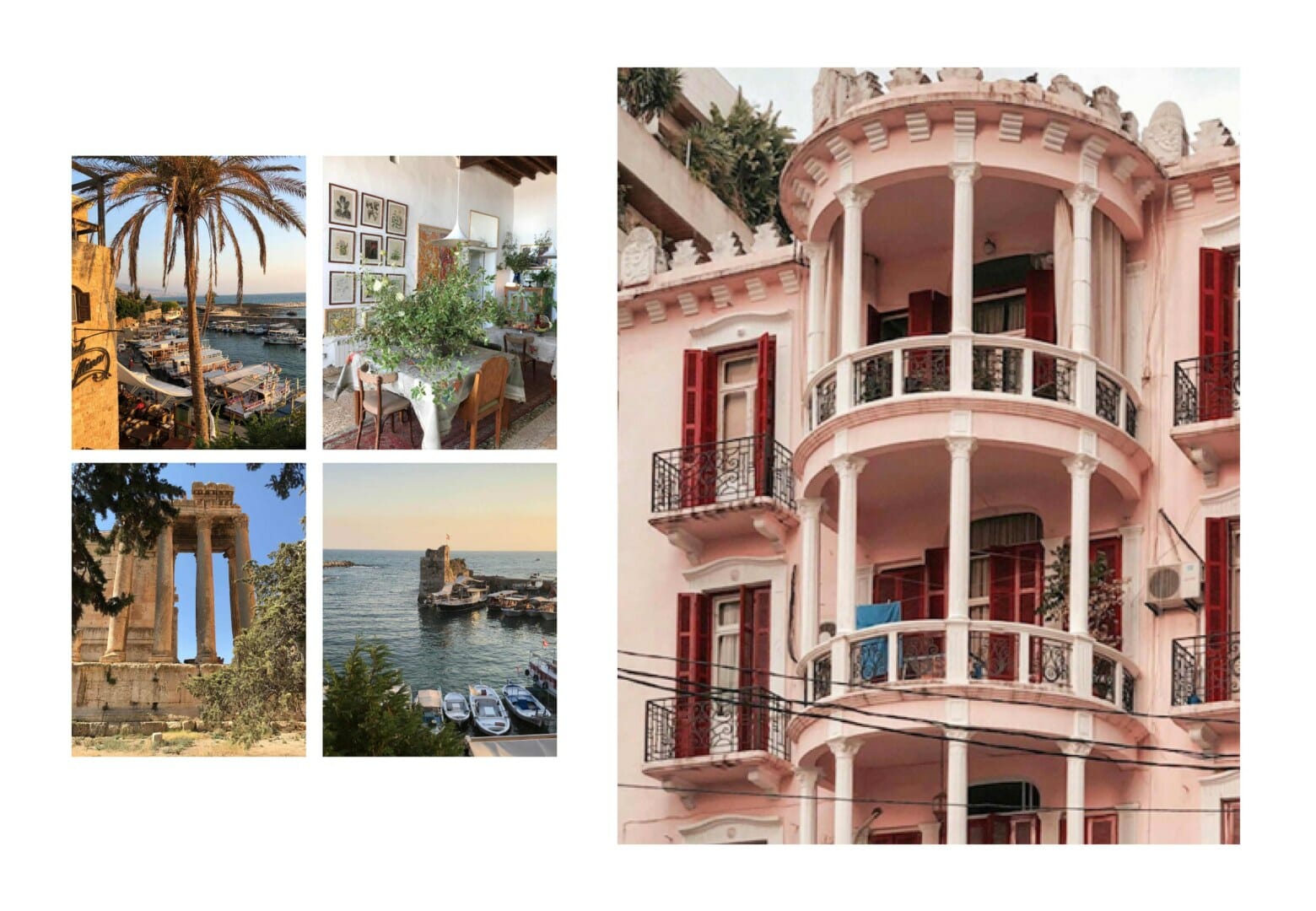
Images courtesy of Marie-Claude
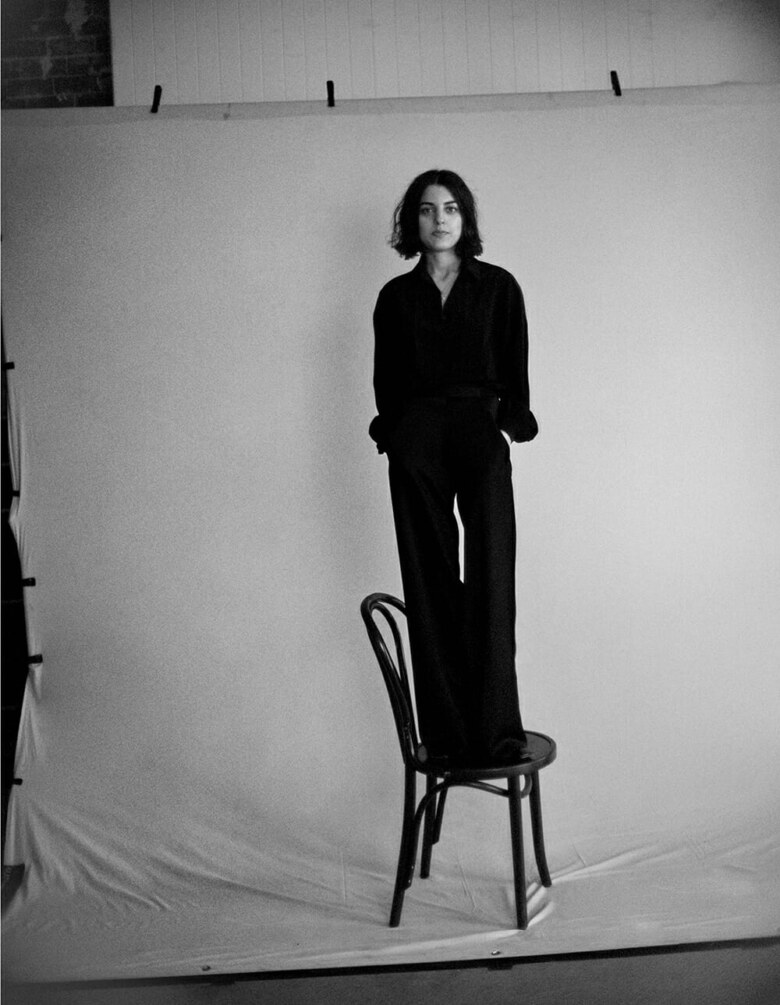
Olivia Lahood
Founder and Director – Olivia Lila Lahood, Creative Manager – Christopher Esber
Donate: The Lebanese Red Cross – Immediate medical relief and providing shelter, food and basic essentials for those impacted
The Slow Factory – ‘Super Fund Fundraiser’ – A five year plan with it’s first phase supporting designers and creatives in Beirut with damaged showrooms and studios from the explosion.
My grandparents on both sides migrated to Australia in the forties and fifties. Being Lebanese meant that family always came first, the family unit becomes before the individual. Especially as a woman, I’ve watched my mother and my grandmothers hold up their families and even communities, often sacrificing their own needs and wants for their children. This is something I’ve always viewed as a sign of our strength and generosity to others.
Visiting Kfarsghab, the small village where my grandparents came from was a very emotional experience for me. To walk through the places that I had grown up hearing about and walk in their footsteps was a sensory moment that will always be special to me. There are so many parts of Lebanese culture that I love – the sense of belonging and community, the food that feeds your soul, and the music that always makes you want to dance.
Being Lebanese has informed my work on many levels. Growing up, my grandmothers would make their own clothes, and my mother, who has had a career as a maker, would always find time to make clothes for herself and our family. These pieces are treasured and passed down as heirlooms. This fueled my interest in fashion and vintage clothing from a young age. I didn’t see it as a practice in sustainability until I was older—it was something that I knew as a core part of my Lebanese culture.
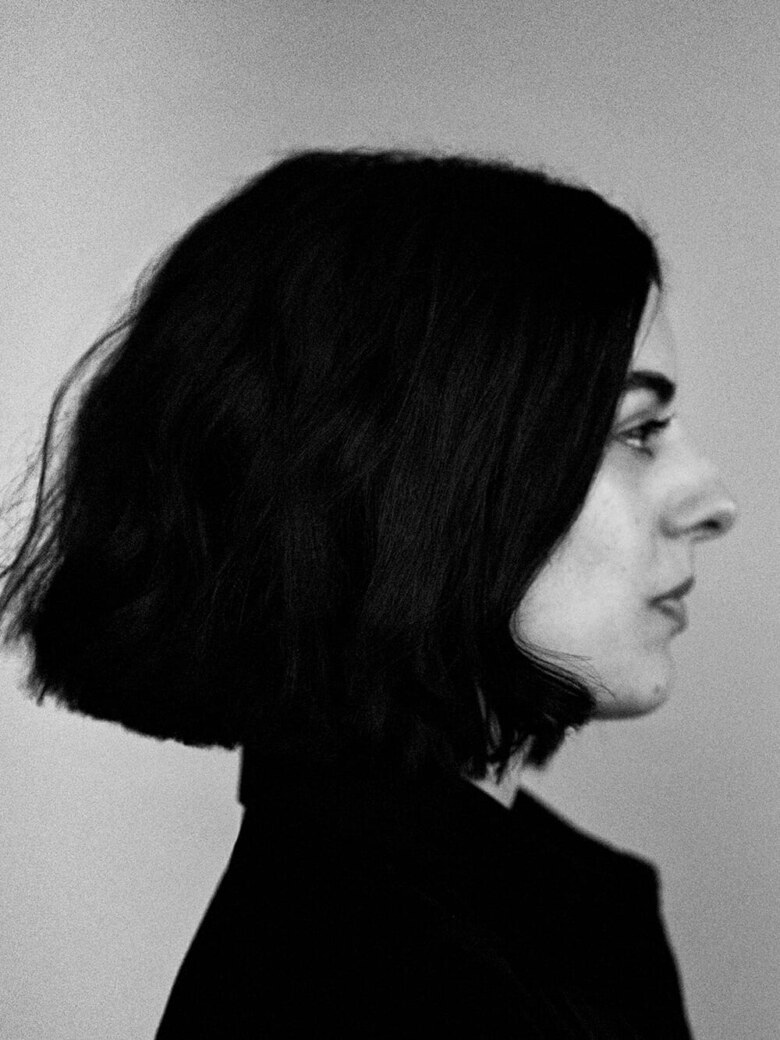
Lebanese culture is rich with tradition but also evolving with the younger generations. From an outside perspective we may look family-centric but if you ever had the chance to be entertained by Lebanese family you will know the feeling of inclusion and warm generosity that extends to our guests and those interested in Lebanese culture.
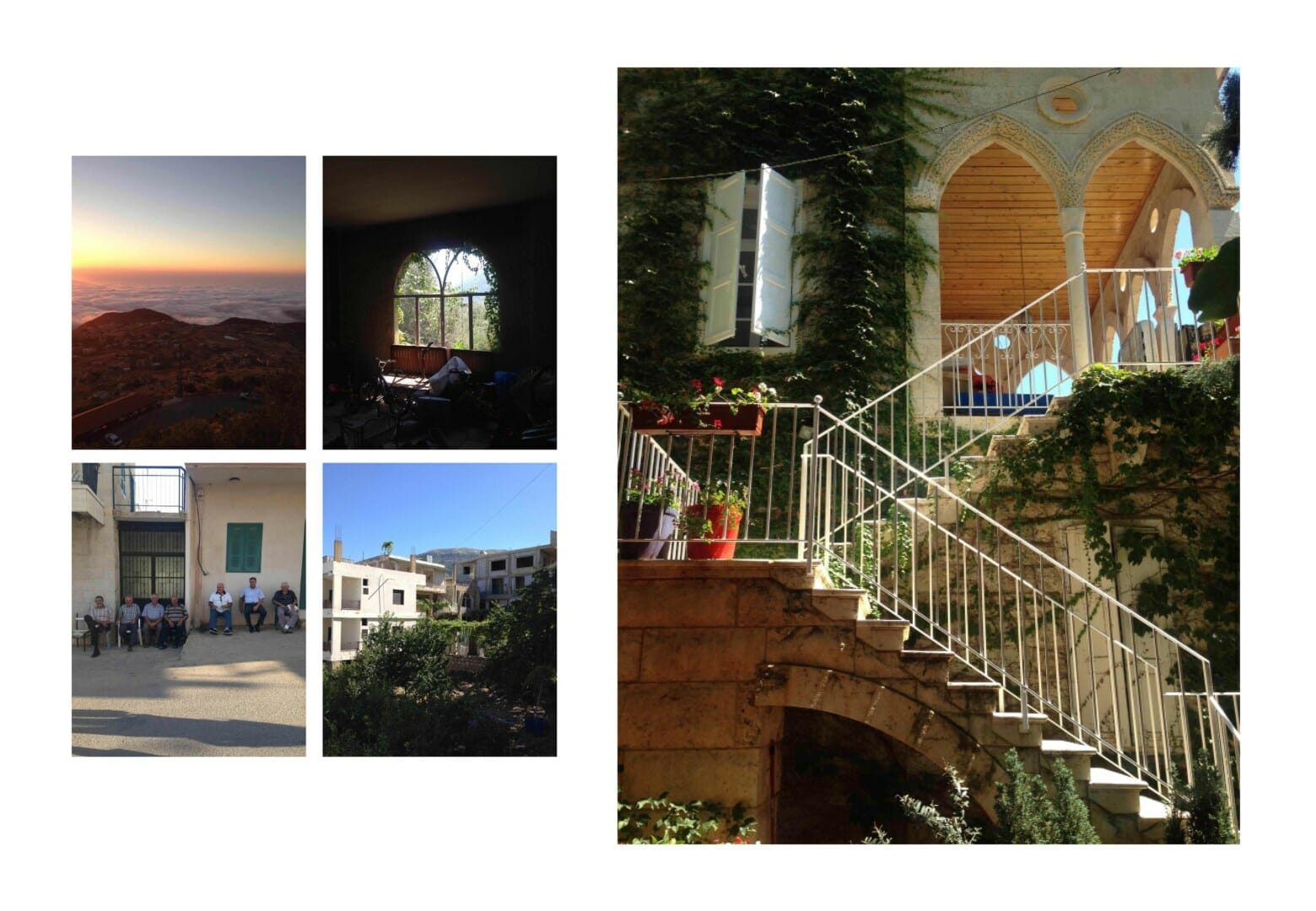
Images courtesy of Olivia
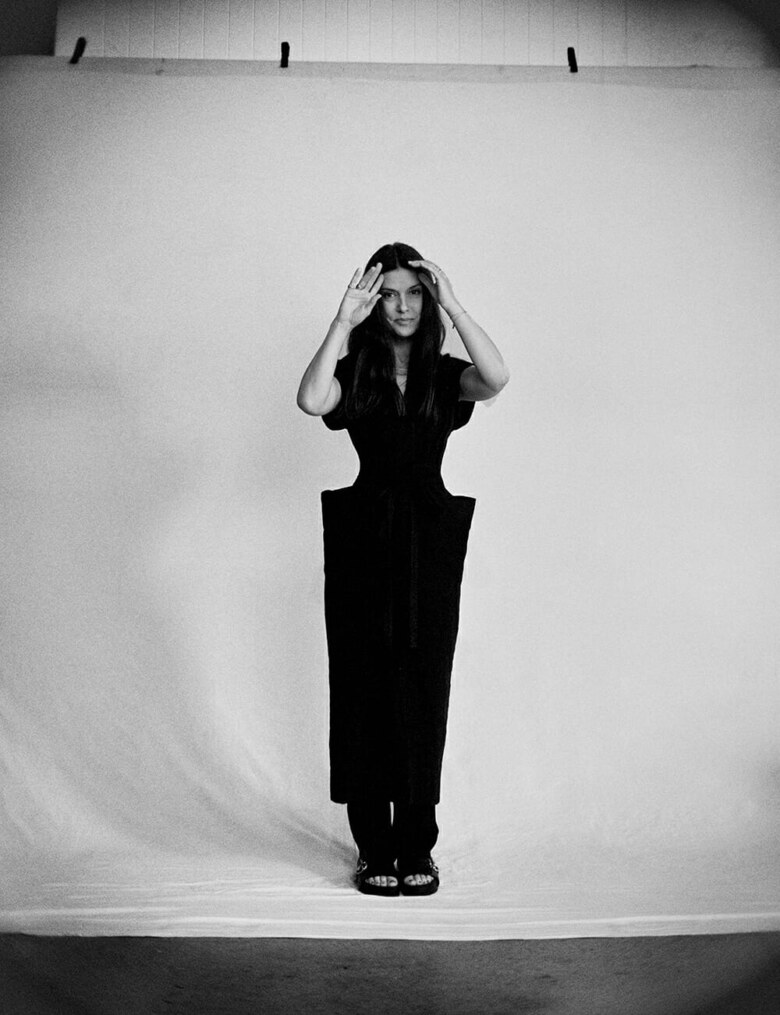
Rachel Wayman
Fashion Director, JONES Magazine
Lebanese culture is something I’m so proud that my children have. My husband is Lebanese – his parents and older siblings were all born in Lebanon, and his whole family migrated to Australia in the early ’70s. He’s one of five and there are 20 nieces and nephews, and they’re all extremely close. My mother-in-law and father-in-law are still very rooted in a lot of Lebanese traditions, which I make sure my children are a part of. They plant all their own vegetables and live off what they grow and my children will go to their Jido (grandfather)’s house and they’ll pick fruit and vegetables with him, they’ll get the eggs from the chickens and they’ll watch him marinate the olives. I love that they are taking part in traditions that they’ll be able to recreate for themselves as they get older.
Food is a big thing in our family. I can never live up my mother-in-law’s cooking. My sisters-in-law are famous in the family for different dishes – one sister is famous for her tabbouleh and another is famous for her knefeh. Over time I’ve taken down their recipes, followed them step-by-step, and have even been able to nail a few of them. Once a week my mother-in-law will cook all our children’s favourite food, and then she’ll call us to say ‘Come pick it up!’ My eldest son’s favourite food is fasolia bil lahme, which is a stew with lamb bones and beans, and my middle son loves this soup that she makes with carrots and chicken. My mother-in-law has five children and 20 grandchildren, and she does that for all of them every week – it’s quite incredible.
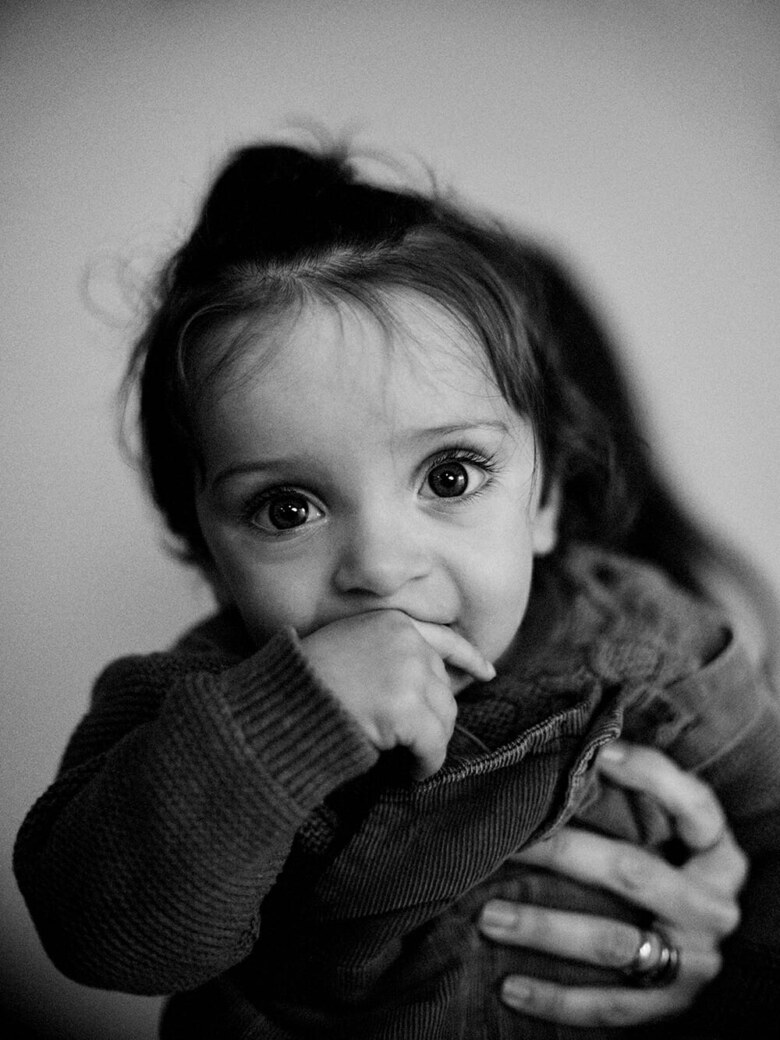
I’ve been to Lebanon three times in the last 20 years, and I think it’s an very misunderstood country. Beirut is an amazing, buzzing, cosmopolitan city. It’s full of artists and yoga studios and beautiful cafes and restaurants. People have come back from living all over the world to live in Beirut and those people built it into this incredible community. They had no government support, they did everything themselves, and they’ve done it because they love their country and want to give back to it. To see all of that destroyed is just incredibly heartbreaking.
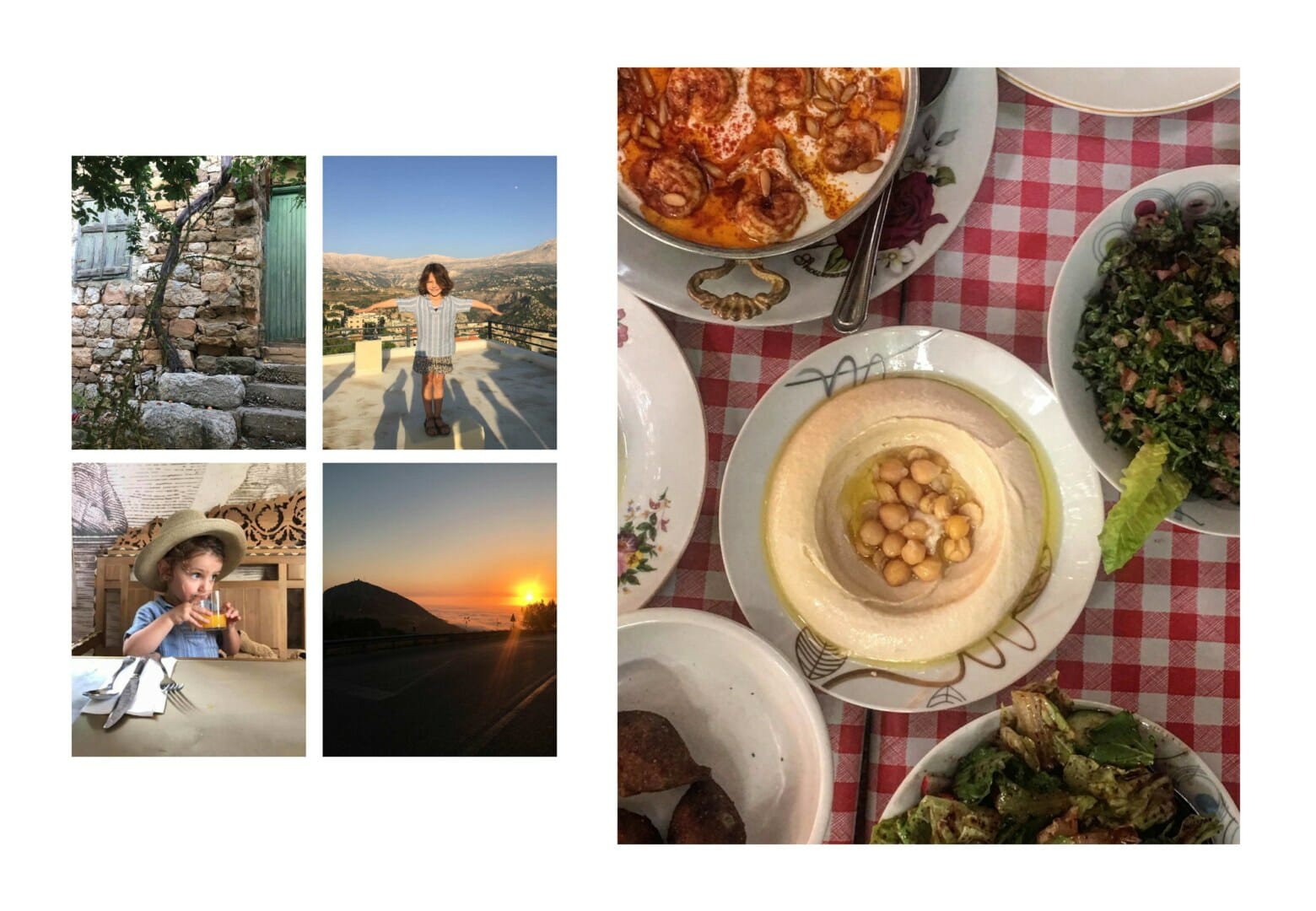
Images courtesy of Rachel
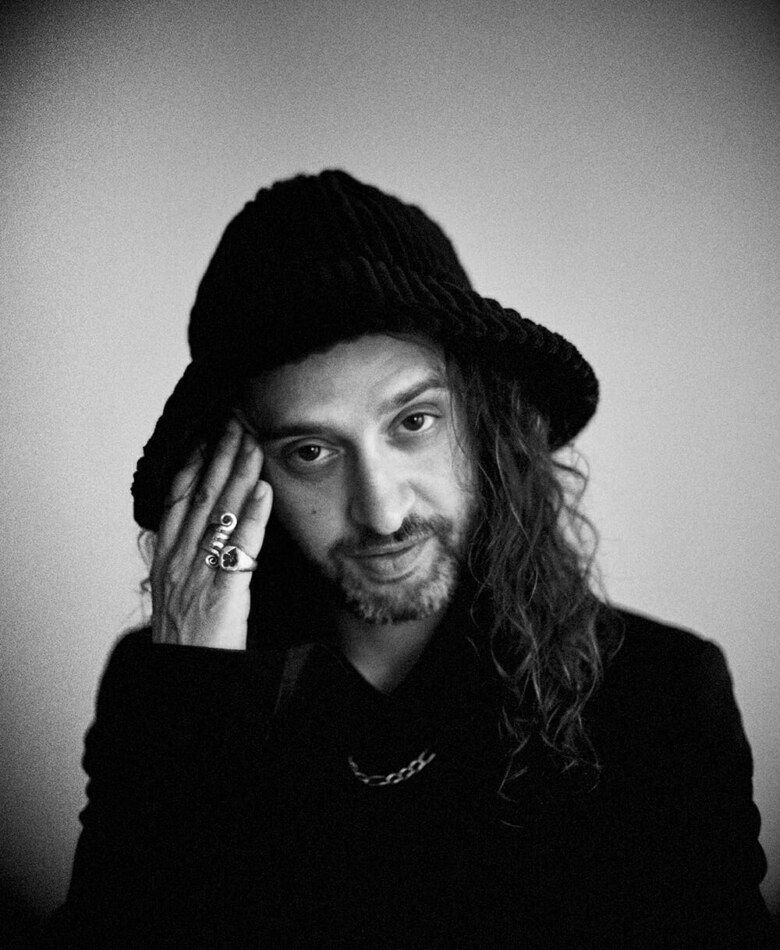
Ribal Hosn
Film Director
I was born in Lebanon, my father is Lebanese and my mother is from Sierra Leone and has a Lebanese background. Lebanese was my first language. As a kid I used to go to Lebanese school on the weekend, and I was disciplined in a Lebanese way (laughs). I still visit Lebanon almost every year and have countless favourite moments, from playing with fireworks as a kid to partying in Beirut as an adult. But I think some of my fondest memories are hanging out at our house with my cousins on a share-swing (a ‘marjouha’) and speaking for hours on end with my Teta (my grandmother) about her life and memories.
The thing I love most about Lebanese culture is the inherit camaraderie. I’m not sure if it’s a cultural thing but I’ve always liked the fact that a complete stranger would suddenly turn in to my cousin if we found out we’re both Lebanese! That, and the Lebanese hospitality towards guests. The importance of Lebanese hospitality was deeply instilled in me at a young age and has carried on with me to this day.
I first read ‘The Prophet’ by the Lebanese author Khalil Gibran when I was 16, and a lot of his work and ideas opened my mind at an early age. When I was 25, after spending a summer in Lebanon, my Uncle Jamal and Auntie Intisar were some of the first people to encourage me to pursue a life in a creative field and introduced me to new art, music and literature that had a profound impact on me. I think my Lebanese heritage informs elements of my work without me really knowing it.
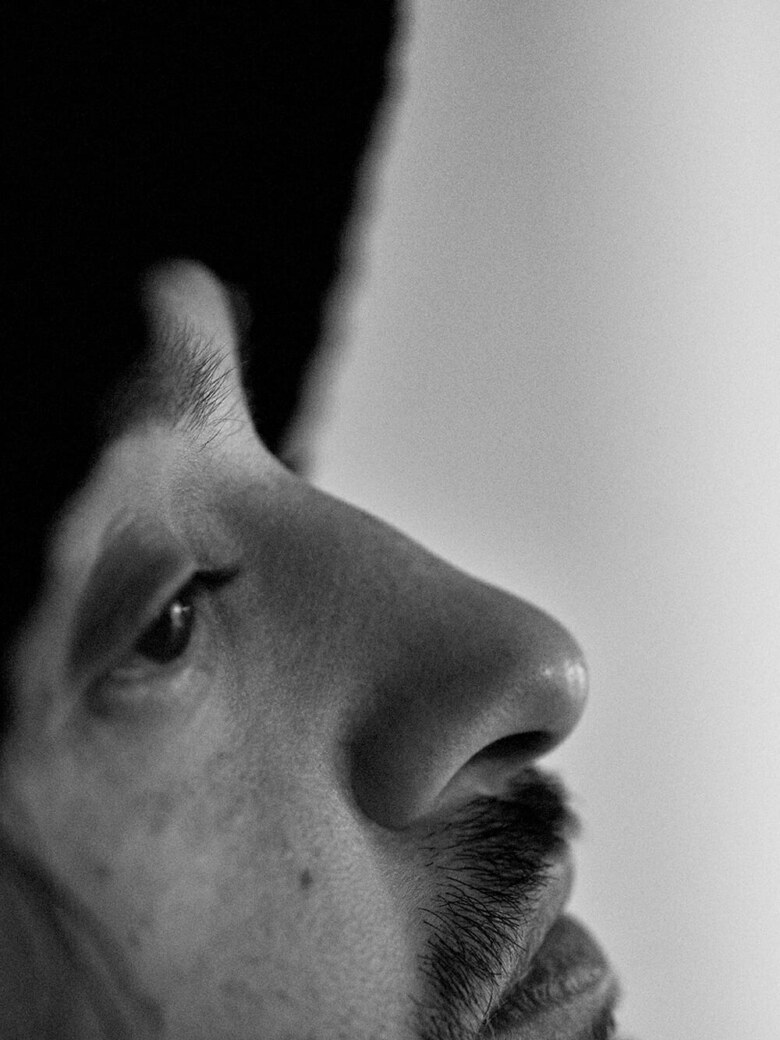
I don’t actually think we are a hugely misunderstood culture. I think the biggest misunderstanding come from groups within Lebanon itself. I guess people are surprised when I mention that Lebanon is a lot more liberal than you might assume. I think a lot of immigrant communities become slightly more conservative when they migrate to new countries… I always find it funny when my relatives in Lebanon tease my relatives in Australia for being ‘narrow-minded’.
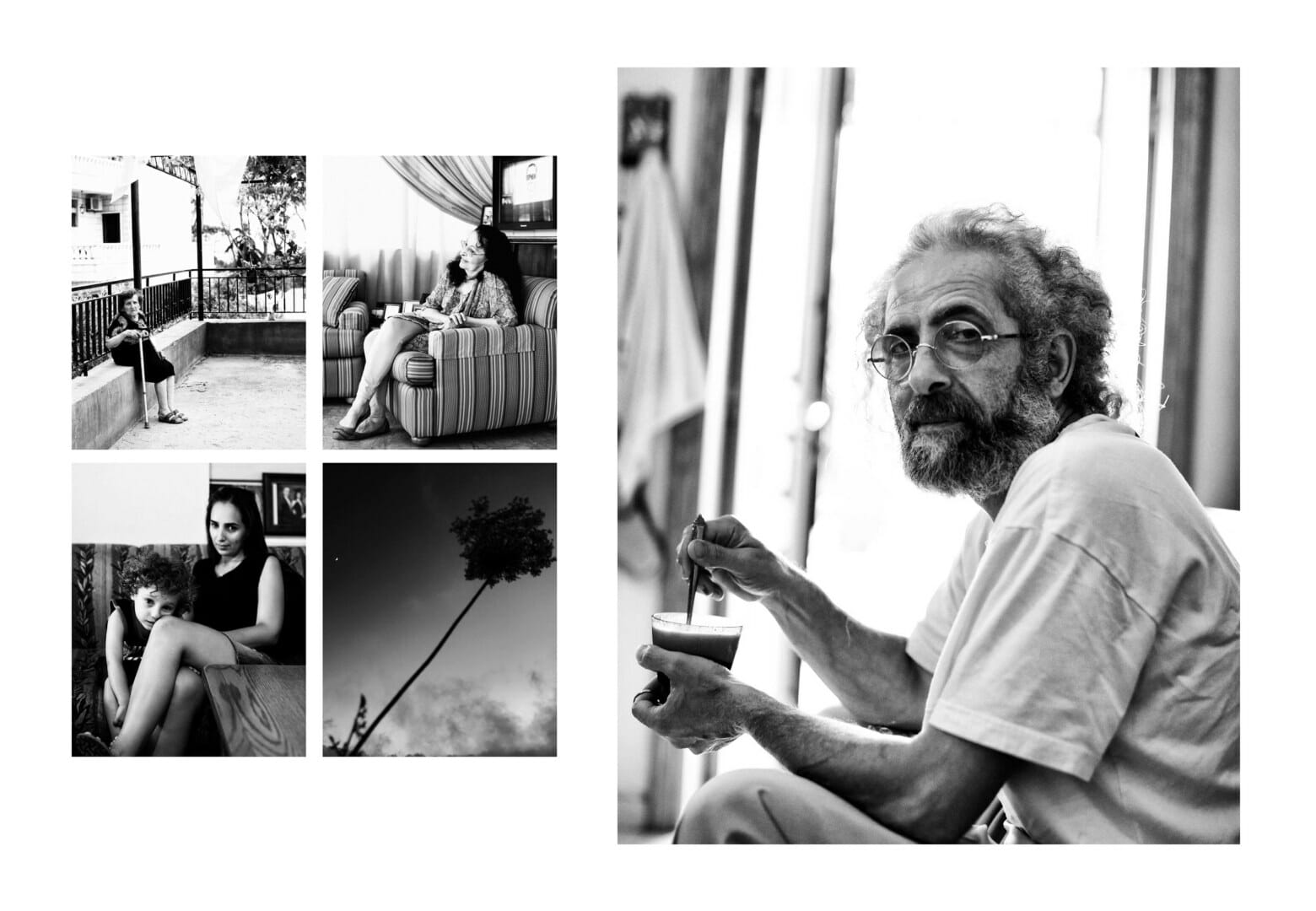
Images courtesy of Ribal
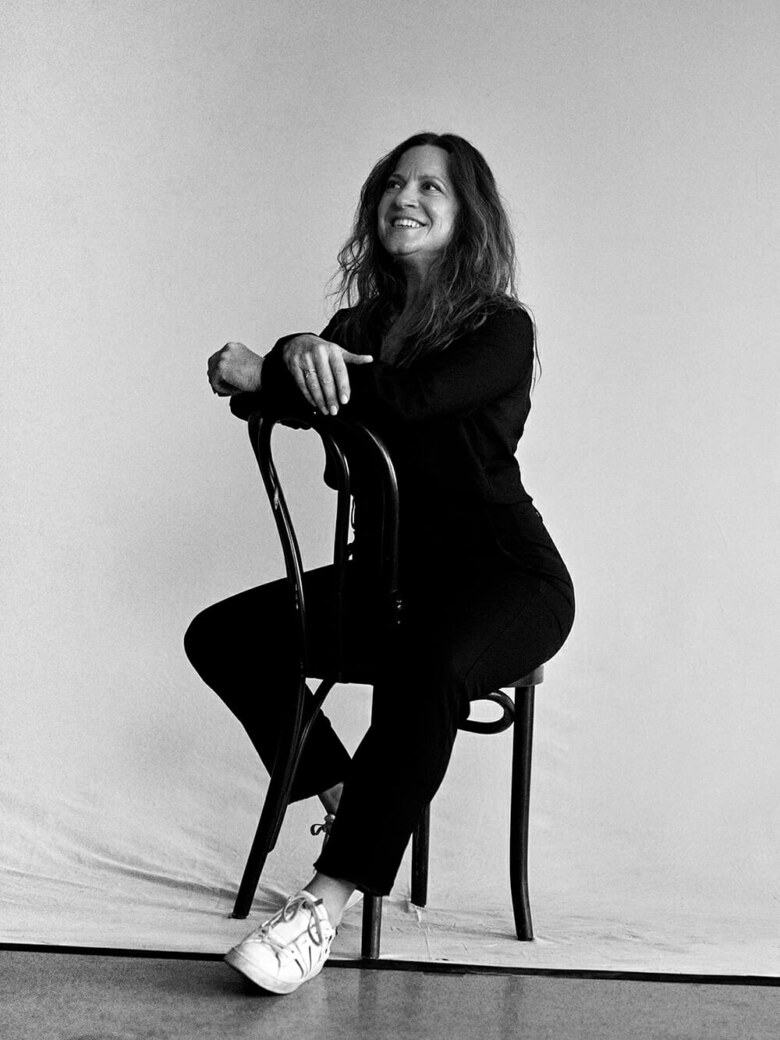
Sarah Tammer
Hair and Makeup Artist
Donate: Basics For Beirut
My grandfather Jiddy, on my father’s side, came from Lebanon to Australia in 1926. Lebanese culture had a huge impact on my childhood growing up – big family gatherings with lots of delicious Lebanese food were a weekly event at my grandparents place, and there was always Arabic music being played.
Jiddy and his brothers would speak loudly and passionately in Arabic while playing cards and backgammon, drinking strong Arabic coffee so thick you could stand a spoon up in it. My brothers and cousins and I were allowed to use Jiddy’s older slightly frayed cards, we would spend hours making card houses on the floor while Jiddy played solitaire or ‘patience’, which I still enjoying playing, I find it very relaxing almost meditative.
My cultural inheritance has a huge influence on my life and my career. My passion for the arts, fashion, skincare, natural fragrances, essential oils and design and all heavily influenced by my family, and my passion for my career came from them too. My grandmother, Nina, was the first hairdresser in our family. When Jiddy met Nina they fell in love, and after some time Jiddy made the transition shirtmaker to a hairdresser. They went on to run their own, very successful hairdressing salon together. My grandparents had five children, four of whom also carried on the family trade and became hairdressers. There were quite a few salons amongst us all at one stage. In the next generation, my cousin and I continued on the tradition. I added make-up to my repertoire many moons ago, but I’m still passionate about hair. It’s definitely in the blood and I believe the Lebanese have reputation for being excellent hairdressers.
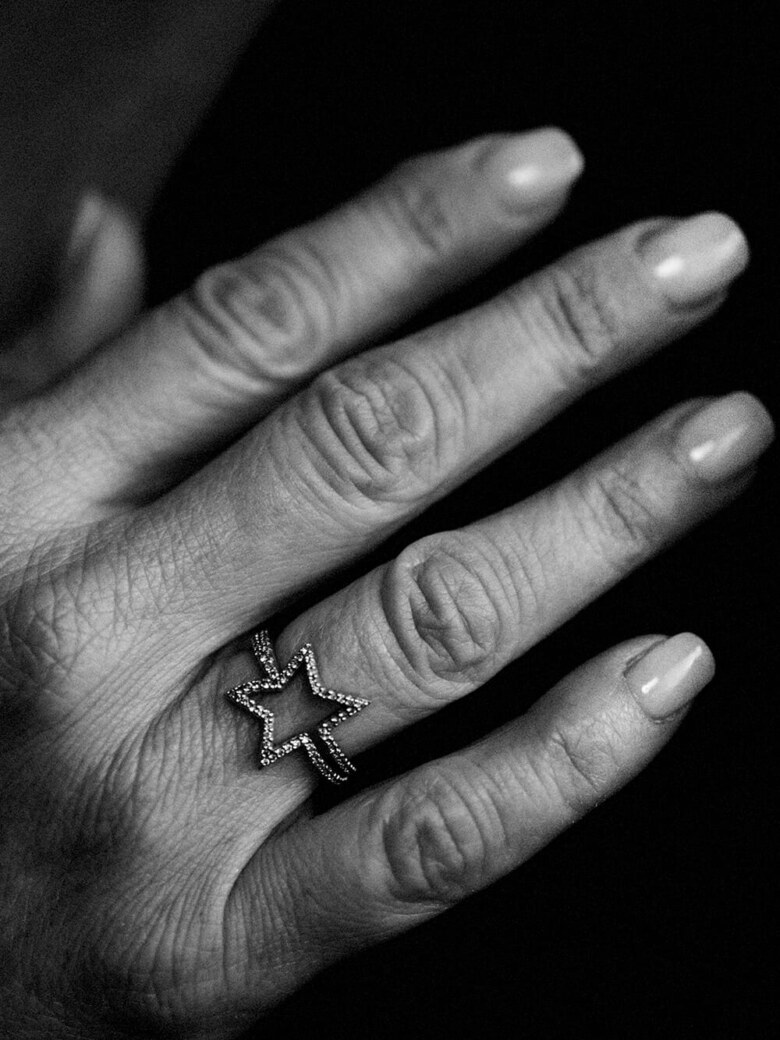
My strongest childhood memories centre around Lebanese food. I still remember Jiddy proudly showing me his garden, especially the cucumbers (still one of my favourite things to eat), and he also grew and delicious exotic fruit called a loquat which has a yellowy orange skin, a soft juicy textured flesh and a smooth pip in the centre. Jiddy would hand-mince the mutton to make kibbi, a traditional Lebanese lamb dish, and made his own yoghurt, which would sit in the back room on the floor in a big tub, wrapped in a blanket to set. We weren’t allowed to go near it, but I recall as a young child being so curious about the mystery of the pot that we dared to look inside once or twice. I think my most Lebanese feature is my heart. I can feel the Lebanese spirit in my heart and pumping through my veins, along with the warmth and passion.
–
SIDE-NOTE acknowledges the Eora people as the traditional custodians of the land on which this project was produced. We pay our respects to Elders past and present. We extend that respect to Aboriginal and Torres Strait Islander peoples reading this.
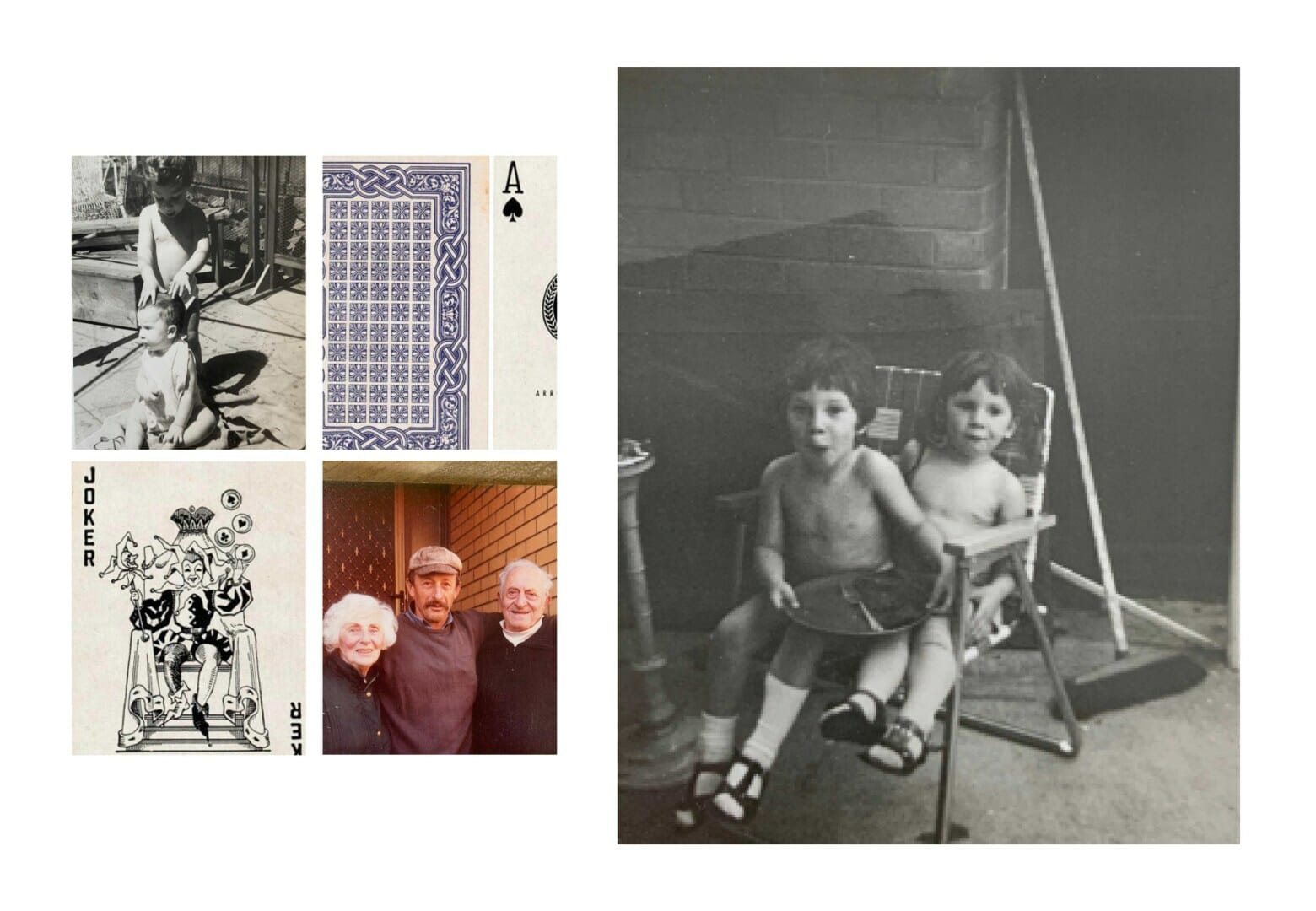
Images courtesy of Sarah
